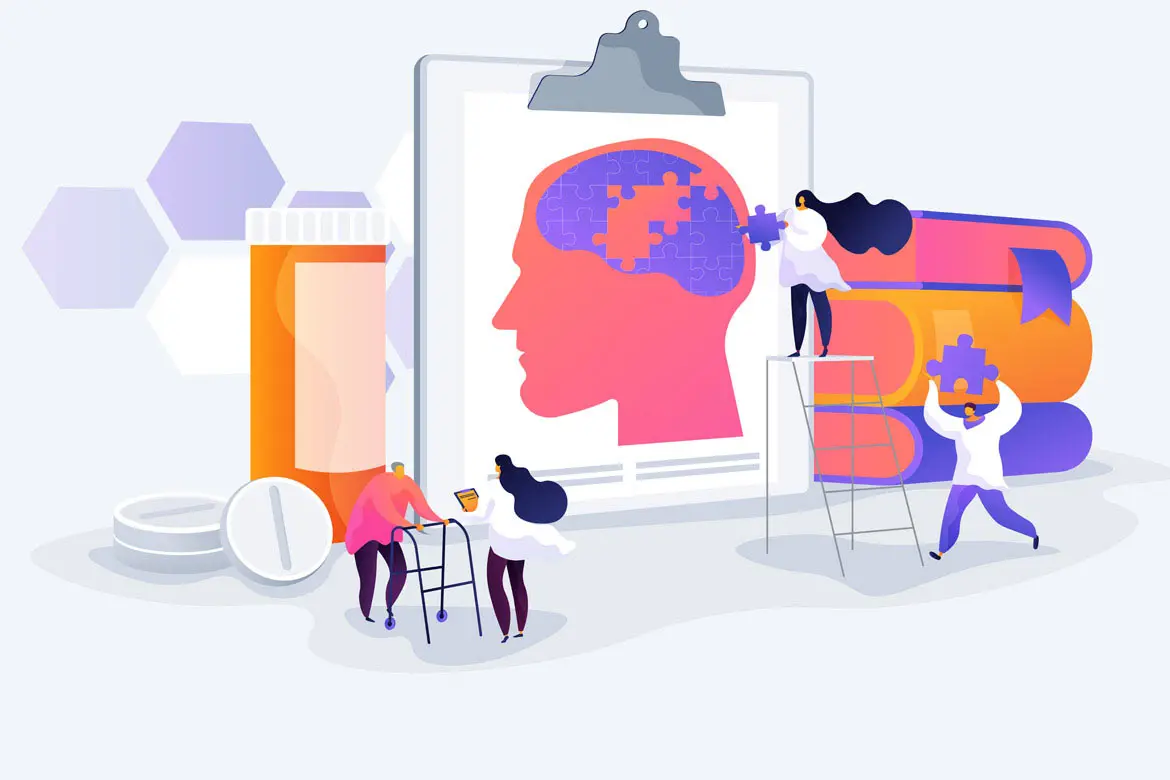Dr Ang Peng Chye
Psychiatrist


Source: Shutterstock
Psychiatrist
Alzheimer's disease is the progressive loss of brain cells associated with the formation of insoluble proteins in and around the brain cells. This affects your memory, thinking, and behaviour, interfering with day-to-day life.
To date, no single cause of Alzheimer's disease has been determined. However, for many individuals, it is caused by a mix of genetic, lifestyle and environmental factors that have an effect on the brain over time – the most common factors being age (65 years old and above) and family history. Although much rarer, there are specific genetic changes that can guarantee the development of the disease.
The early signs of this disease will vary from forgetting recent events to forgetting entire conversations. As the severity of the disease progresses, the patient can develop severe memory impairment and may lose the ability to carry out basic, everyday tasks like showering, eating, and having conversations.
People with Alzheimer's disease will display certain continuous behaviours that worsen over time. These include:
It is important to note that not all symptoms of Alzheimer's disease will appear at once. Symptoms will change in line with the stage of the disease. Alzheimer's disease is typically broken down into 7 stages.
Stage 1: There are no symptoms present at this stage. However, based on the patient's family history, the doctor could diagnose the patient with Alzheimer's disease.
Stage 2: The patient starts to experience symptoms such as forgetfulness.
Stage 3: Mild physical and mental impairments, including reduced memory and concentration, start to appear. However, because the symptoms are mild in this stage, they might only be noticeable by the patient's immediate caregiver.
Stage 4: Although this disease is typically diagnosed at this stage, it is still considered mild. In this stage, memory loss and the inability to perform everyday tasks is clear.
Stage 5: Moderate to severe symptoms begin to appear. The patient will likely require aid from loved ones or caregivers.
Stage 6: At this stage, the patient may need help with basic tasks, like eating and putting on clothes.
Stage 7: At the most severe stage of Alzheimer's disease, the patient may experience loss of speech and the inability to control facial expressions.
To date, there is no cure for Alzheimer's disease. However, treatments can help slow the progression of the disease and should improve quality of life. Current Alzheimer's disease medications will usually help individuals suffering from the disease to maximise function and maintain independence for a period of time.
There are steps that you can take to lower your risk of developing the disease. Begin creating healthy style choices such as:
Consult your doctor if you are suffering from any abnormal memory loss or other symptoms of Alzheimer's disease. Additionally, you can visit your doctor if you are not experiencing any symptoms but you match the risk factors like age, case history and genetics, and wish to have a professional opinion.